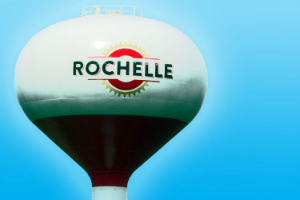- Details
 According to a recent study by IBM Watson Health, Illinois has one of the highest numbers of top hospitals in the state. Out of the 100 top hospitals in the nation, only Texas and Ohio exceeded Illinois in the number of top-ranking hospitals.
According to a recent study by IBM Watson Health, Illinois has one of the highest numbers of top hospitals in the state. Out of the 100 top hospitals in the nation, only Texas and Ohio exceeded Illinois in the number of top-ranking hospitals.
IBM Watson Health’s study analyzed about 2,750 acute care, short-term, non-federal hospitals for the 2018 list. Its study reported that top-performing hospitals realized better risk-adjusted outcomes and maintained both a lower cost to patients and a higher profit margin.
- Details
 The unemployment rate in all 102 counties of Illinois dropped in 2017. Over the past year, the unemployment rate decreased from 5.6 percent to 4.7 percent.
The unemployment rate in all 102 counties of Illinois dropped in 2017. Over the past year, the unemployment rate decreased from 5.6 percent to 4.7 percent.
According to the Illinois Department of Employment Security (IDES), Bloomington-Normal finished the year with the lowest unemployment rate in the state at 3.8 percent. Bloomington-Normal reportedly added 1,100 non-farm related jobs in 2017.
- Details
 IKEA’s Midwest distribution center in Joliet now boasts the largest solar rooftop in the state. The two IKEA stores in Bolingbrook and Schaumburg also have solar rooftops, making IKEA the owner of the three largest solar rooftop in Illinois.
IKEA’s Midwest distribution center in Joliet now boasts the largest solar rooftop in the state. The two IKEA stores in Bolingbrook and Schaumburg also have solar rooftops, making IKEA the owner of the three largest solar rooftop in Illinois.
The Joliet rooftop will produce approximately 3,377,000 kWh of electricity yearly, which is the equivalent of reducing the emissions of 538 cars or providing electricity for 377 homes.
Solar rooftops absorb the sunlight as a source of energy to generate electricity and/or heat.
The Joliet distribution center is favorable for IKEA’s network due to its central location and nearby railroads. IKEA is already planning to build another facility nearby, which could be a big job creator for Illinois.
IKEA is working toward moving to clean energy in all aspects. The company has earmarked $2.5 billion to invest in renewable energy until 2020, when the company also hopes to be energy independent – IKEA wants to produce as much clean energy as it uses in its buildings.
IKEA has constructed 700,000 solar panels on buildings across the world and has over 300 wind turbines. One-third of the approximately 300 wind turbines are located here in the United States, and 49 are in Hoopeston, Illinois.
For more information about IKEA, click here.
- Details
 The Future Energy Jobs Act aims to turn 25 percent of Illinois’ power green by 2025, and already some residents and businesses are utilizing provisions of the bill to switch to more renewable energy sources.
The Future Energy Jobs Act aims to turn 25 percent of Illinois’ power green by 2025, and already some residents and businesses are utilizing provisions of the bill to switch to more renewable energy sources.
In one Tazewell County township, plans are in the works for as many as 400 households to utilize renewable energy, according to the Peoria Journal Star.
Fondulac County could be the site of the first community solar project as early as 2019, pending zoning board approval. County administrators credited the Future Energy Jobs Act for making the investment in clean energy possible.
These advancements are made possible by the act’s wide range of tax credit incentives for businesses big and small, along with individuals wishing to switch to residential renewable power production or energy efficiency.
- Details
 In the small town of Rochelle, about 80 miles west of Chicago at the intersection of Interstates 88 and 39, business is booming. The Greater Rochelle Economic Development Corporation has attracted companies like Nippon Sharyo, Boise Cascade, Tyson Foods, and Hormel.
In the small town of Rochelle, about 80 miles west of Chicago at the intersection of Interstates 88 and 39, business is booming. The Greater Rochelle Economic Development Corporation has attracted companies like Nippon Sharyo, Boise Cascade, Tyson Foods, and Hormel.
This rural community consists of about 9,000 people, and its economy is bolstered by frozen French fries, bacon, ethanol, fabricated steel, hydroponic tomatoes, and the production of passenger cars for METRA. Each year, about 16,000 freight cars pass through Rochelle, picking up and delivering grain and other goods. Rochelle will soon gain another local gross domestic product from a boutique whiskey that is distilled in a former downtown theater.
Rochelle is also home to a 1,200 acre intermodal rail park operated by Union Pacific. This park is used as a shipping point to send goods to the Pacific Rim.
The growth doesn’t stop there. The future for Rochelle as an industrial star in Illinois and the Midwest looks bright. Rochelle is working to bring a $1.6 billion auto assembly plant from Toyota Motor Corp. and Mazda Motor Corp., which could employ 4,000 people, to the town. Bidders from more than a dozen states are looking at the same prize, but Rochelle is already prepared. The town has 1,000 acres of corn and soybeans set aside for the new plant.
Rochelle is proving the common melody played by political and business elites wrong. Illinois is not a diminishing state, but instead outshining surrounding states in certain areas thanks to cities like Rochelle.
More Articles …
- $30 million food incubator planned for Chicago’s West Side
- Chicago craft beer market attracting out-of-state brews
- Illinois film industry a nearly half-billion dollar enterprise
- Koval Distillery to expand business operations in Illinois
- Central Illinois city among nation’s fastest in population growth



